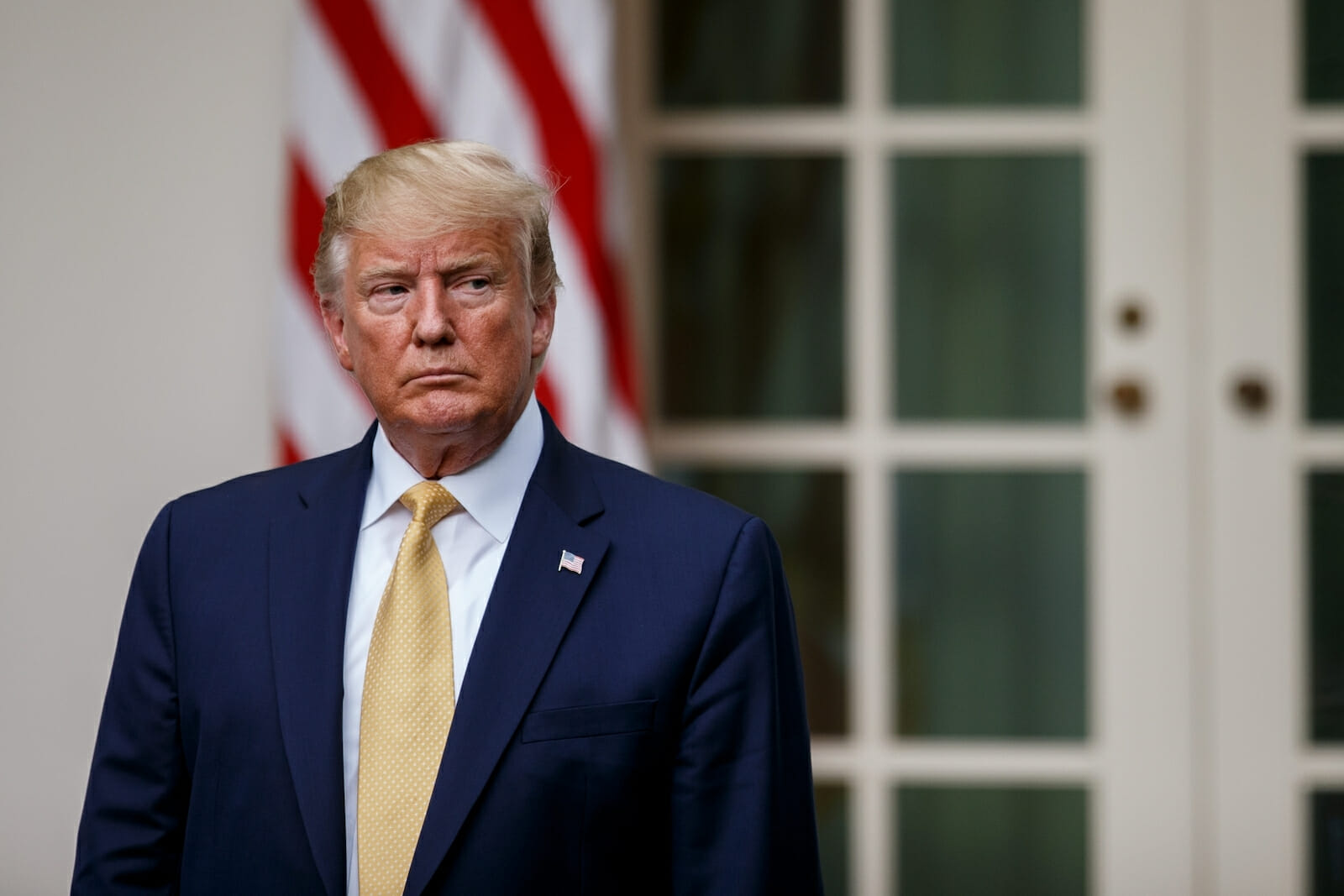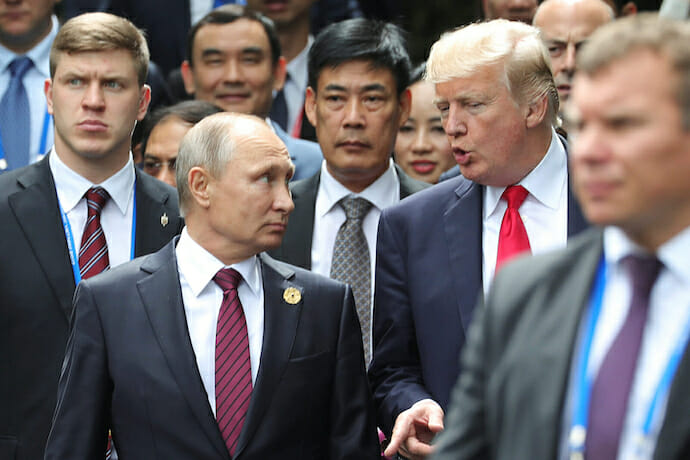
Appeasement in the 1930s and Climbdown Today: Two Recipes for Failure
In the realm of international affairs, a feature that characterizes both the period preceding World War II and the present time is no other than the reluctance of the leading democracies to assertively confront the regimes that vie for the annihilation of democratic institutions and values. What today amounts to democracies’ avoiding, by all means, military standoffs – backing away from commitments if need be – bears indeed a disquieting resemblance with the appeasement in vogue among those same democracies in the 1930s.
At that time, democratic powers were averse to antagonizing the totalitarian regimes of the so-called Axis (Nazi Germany, Fascist Italy and Imperial Japan) and relentlessly sought some kind of accommodation with them. The highlight of such a mood turned out to be the 1938 Munich Agreement, whereby Great Britain and France submissively accepted Nazi Germany’s annexation of the Sudetenland – until then part of Czechoslovakia. That covenant, and more generally the appeasement tactics employed by Europe’s leading democracies, did not calm down – as a matter of fact, they spurred – the expansionist designs of Adolf Hitler and his accomplices.
There was, too, America’s hesitancy to throw its weight behind Europe’s democracies. Only after Japan’s attack on Pearl Harbor, more than two years after the outbreak of World War II did the U.S. wake up to reality – and to the need to utilize its military might for the sake of its own survival.
Today, the world’s democracies lack again the political stamina required to effectively address the existential danger that the new axis of authoritarian regimes – China, Russia, Iran, and like-minded governments – pose to the democratic way of living and to freedom of expression.
For starters, Europe’s democracies, for their part, have become a geopolitical lame duck. Since the times of the Cold War, they are used to seek shelter behind the U.S. military umbrella and are utterly unequipped to repel, by themselves, any military aggression.
For its part, America, the only democracy with a meaningful military arm, suffers at present from something as paralyzing as the apathy it manifested in the period preceding Pearl Harbor. Today, after the dismal outcomes of the Iraq War and of regime change in Libya – and with the Vietnam syndrome still haunting the collective memory – to refuse military confrontation has become a foreign policy practice that pervades the entire U.S. political spectrum.
As noted by Richard Lowry in the columns of The New York Post, it was a publicly-assumed war aversion that enabled both Barack Obama to beat Hillary Clinton in the 2008 Democratic primaries, and Donald Trump to secure the GOP candidature in 2016.
Once at the command of the U.S., both Obama and Trump have unbashfully avoided any military showdown – even at the price of failing to fulfill the threats and red lines that they themselves set against eventual, aggressive moves by America’s rivals.
Trump’s abrupt decision to pull out troops from Syria is a case in point. For sure, reasons did exist for the U.S. to step away from the Syrian battlefield – if only to redeploy resources and reorient efforts towards the challenge that matters most to the U.S.: to confront its peer competitor, i.e. China. And yet, the manner in which President Trump carried it out, that is, leaving the Kurds at the mercy of Erdogan’s regime, dealt a serious blow to the credibility of U.S. foreign policy commitments. That withdrawal played into the hands of U.S. foes in the region and has left America’s partners wondering how much value they should give to U.S. pledges to support them.

A parallel between, on the one hand, democracies’ appeasement efforts vis-à-vis Hitler in the 1930s and, on the other hand, Trump’s concession to Turkey by pulling out U.S. troops from Syria’s Kurdish-populated areas, has been drawn by political scientist David Woolner in the columns of the Washington Post. In the light of what is asserted here, however, today’s similarity with the 1930s is actually much broader, deeper and worrisome: it relates to the reflex of the last two U.S. presidents (Obama and Trump) of backing away from commitments and threats.
Indeed, the retreat from Syria came just a few months after another spectacular climbdown, namely: Trump’s decision to instruct U.S. planes to reverse course after they had taken off to strike military targets in Iran in reprisal for the shooting down of an unmanned U.S. drone. Add to this Trump’s lack of muscular response to the attack on a Saudi Arabia oil infrastructure (attributed to Iran by Riyad), and then it becomes apparent that America’s Middle-East allies have ample reasons to question how dependable the U.S. actually is.
To climbdown from commitments and threats to the detriment of U.S. allies was, too, a distinctive feature of the Obama administration. Salient examples of that attitude relate to Obama’s withdrawal from Iraq (only to have to send U.S. troops back three years later) and – the mother of all climbdowns – his refusal to enforce the red line that he himself had set as regards the use of chemical weapons by the Syrian regime.
Had Obama not remained passive after the Syrian regime crossed his red line on the use of chemical weapons, Vladimir Putin’s Russia would not have edged out the U.S. as the actual power broker in the Middle East.
In a similar vein, the tepid reaction by both Obama’s and Trump’s administrations to China’s incremental steps aimed at taking control of the South China Sea puts in serious jeopardy the U.S.-led freedom-of-navigation framework that has prevailed across the oceans since the end of World War II.
This is why more than one political analyst have asserted that “Trump is repeating key Obama Middle East mistakes” and referred to Trump’s Syria blunder as “Trump’s Obama moment.”
Authoritarian regimes can only relish the U.S. war-weariness. They know with near certainty that America’s reaction to their expansionist moves will be tepid and ineffectual. The ensuing defiant mood is at work in Russia, with its annexation of Crimea, its proxy war in Ukraine, its recently-acquired role of power broker in the Middle East and its support to Venezuela’s regime in the backyard of the U.S. The mood is at work in China, which is slowly but surely strengthening its grip over the South China Sea. The mood is at work, too, in Iran, which continues to conduct attacks against U.S. allies in the Middle East.
Every time a U.S. rival takes hold of new terrain or gain ascendancy in one of the present arcs of crisis, it gives itself a pause, the time for it to consolidate its advance and for democracies to accept and live with the loss. The will to conquer further terrain by incremental steps, however, remains intact, waiting for the next opportunity to bite. Strategic patience, advertised by former President Barack Obama, suits better to the expansionist designs of today’s authoritarian regimes than to the U.S.
As the U.S. becomes an unreliable partner, its allies have been seeking accommodation with U.S. foes – in particular, Russia.
Lack of trust in U.S. commitments is particularly acute among Arab powers. Putin’s visit to Saudi Arabia and the United Arab Emirates in the wake of Trump’s announcement of his decision to leave the Syrian terrain (Putin’s first trip to those countries in over a decade), is a clear indication of the willingness of America’s Middle-East partners and friends to seek a modus vivendi with U.S. rivals rather than keep depending on U.S. support.
In the same fashion, the government of the Philippines is seeking closer cooperation with Russia in the upgrading of military capabilities and developing energy resources in the South China Sea.
Even in Israel, the U.S. Middle-East ally par excellence, foreign policy analysts have begun to take a critical look at the real value of U.S. support.
The longer democracies – in particular, the U.S. – underreact and shirk confrontation at whatever geopolitical cost, the better equipped and positioned their foes will be at the moment when the stalemate becomes unavoidable. Here, too, the case of the 1930s worryingly comes to mind: at that time, democracies’ concessions and appeasement tactics did not prevent war from ultimately breaking out.
Against this somber backdrop, the unpreparedness of Democratic presidential hopefuls in the foreign policy domain should be a matter of serious concern.
Indeed, apart from red-baiting Trump’s foreign policy moves – while sharing his averseness to military standoffs – Democratic presidential candidates have little or nothing to propose on foreign policy issues. In reference to the Democratic debate on October 15, political analyst Audrey Wilson, writing in Foreign Policy’s Morning Brief, asserted that “the candidates provided few concrete policy proposals—leaving viewers with little insight into the Democrats’ own ideas about the role of the United States in the world.”
That debate showed, in particular, that the rising star among Democratic presidential hopefuls, Sen. Elizabeth Warren, appears to have little grasp of what the U.S. involvement in the Middle East amounts to. Other than sharing with the incumbent president the aim of “ending endless wars,” she stated that “we ought to get out of the Middle East,” adding: “I don’t think we should have troops in the Middle East.” With that statement, Ms. Warren mixed up the pullout from Syria with an eventual withdrawal from the entire region. Her campaign subsequently tried to repair the blunder, but with no success.
As underlined by Washington Post columnist Josh Rogin, “now that President Trump is ending the United States’ military involvement in one of those wars, the ‘endless war’ crowd seems incapable of saying how they would have done it differently.”
Trump’s camp is in no better shape. Proof of it: in the midst of the turmoil provoked by Trump’s abrupt and geopolitically-costly withdrawal from Syria, his new National Security Adviser, Robert O’Brien, came to the fore with an article on “how [he] will streamline the National Security Council.” Would any of his predecessors in the post (whether Henry Kissinger, Zbigniew Brzezinski, Brent Scowcroft, or for that matter John Bolton) have chosen to write on stewardship issues at a time when U.S. foreign policy badly needs a full-fledged redefinition and overhaul?
If that is the kind of people who purports to put the U.S. foreign policy stance in world affairs back on track, the reader would be well advised to say farewell to America’s predominant role in this domain – and, consequently, to worry about the fate of the block of democracies in general.

